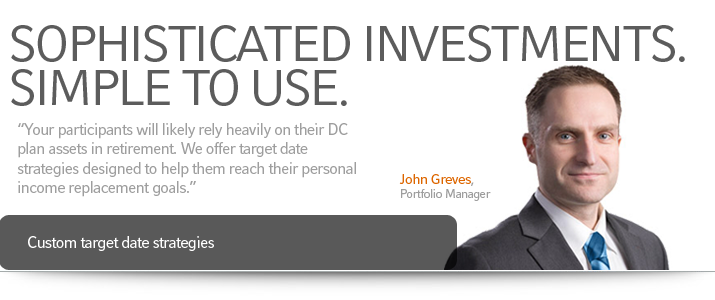5 Considerations for Investing in TargetDate Funds US News
Post on: 14 Декабрь, 2016 No Comment

Target-date funds don’t equate to low risk.
Roger Wohlner
Target-date funds are a staple of many 401(k) plans. Most target-date funds are funds of mutual funds. The three largest firms in the target-date space are Fidelity, T. Rowe Price, and Vanguard with a combined market share of about 80 percent. All three firms use only their own funds as the underlying investments in their target-date fund offerings. Some other firms offer other formats, such as funds of exchange-traded funds, but the fund of mutual funds is still the most common structure.
Here are a few considerations to think about when deciding whether to use a target-date fund option in your company’s retirement savings plan:
[See top-rated funds by category ranked by U.S. News Score .]
The fund’s glide path may or may not be important. Much has been made of whether the glide path (a leveling of the fund’s allocation into retirement) should take investors to or through retirement. Through retirement assumes you will keep your money in the target-date fund into your retirement years. You may or you may not. For example, you might leave your current organization prior to retirement, in which case you might roll your retirement dollars into your new employer’s plan. Or at retirement you might roll your 401(k) assets into an investment retirement account (IRA). In either case, you would be moving out of your current plan’s target-date fund choice.
How does the allocation of the target-date fund fit with your other investments? Many 401(k) participants invest their retirement dollars in a vacuum—meaning they don’t take investments outside of the plan into consideration when making their investment choices. This is a critical mistake. Given that target-date funds are funds of funds you might become over or under allocated in one or more areas and not know it as your account grows. Factoring the allocation into your overall portfolio is just as critical.
[For more investing and money advice, visit U.S. News Money. or find us on Facebook or Twitter .]
The fund closest to your projected retirement date may not be right for you. For example, a 2020 target-date fund is conceivably meant for someone who is 56 and retiring in nine years. If you were to take three 56-year-olds and look at their respective financial situations and tolerance for risk, it is likely that they are all fairly different. Plan providers need to do a better job of communicating to plan participants that the fund with the date closest to their projected retirement date may not be the right fund for their needs. Look at your own unique situation and pick the target-date fund that best fits your needs.

Understand the underlying expenses. In some cases, the overall expense ratio may be a weighted average of the underlying funds. Others may also tack on a management fee to cover the costs of managing the fund. As with any investment, understand what you are being charged and what you are getting for your money.
Target-date funds don’t equate to low risk. Many participants are under the mistaken impression that investing in a target-date fund is a low risk proposition. As we saw in 2008, nothing could be further from the truth. Many investors in 2010 funds saw losses in excess of 20 percent. A recent review of more than 40 target-date funds showed the share of stocks in the funds ranged from about 25 percent to about 75 percent. As with any mutual fund, look under the hood and understand the level of risk that you will be assuming.
Target-date funds can be a good vehicle for 401(k) participants and others who are not comfortable allocating their own investments, or who would simply like a professional to take on this task for them. Unfortunately, target-date funds are not a set it and forget it proposition. Investing in target-date funds requires periodic review to ensure that the target-date fund you have chosen is still right for your situation. Retirement plan providers and sponsors also need to do a better job of communicating the benefits, pitfalls, and potential uses of these funds to plan participants.
Roger Wohlner , CFP is a fee-only financial adviser at Asset Strategy Consultants where he provides advice to individual clients, retirement plan sponsors, foundations, and endowments. He recently cofounded Retirement Fiduciary Advisors to provide direct investment and retirement planning advice to 401(k) plan participants. Follow Roger on Twitter and LinkedIn .














